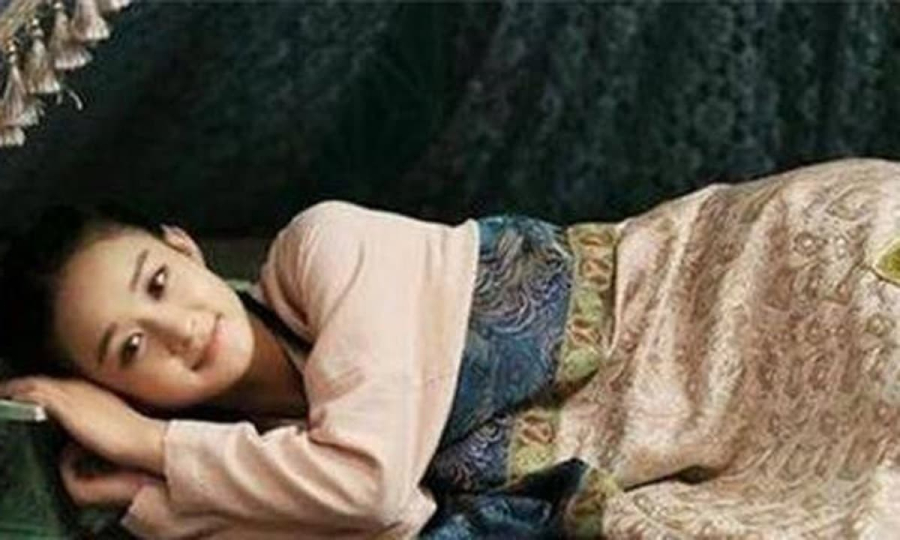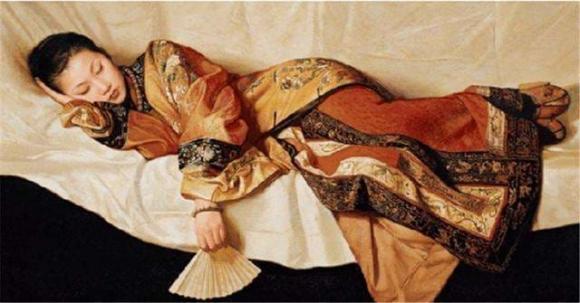In ancient feudal Chinese society, the fate of women was extremely low, so many people thought that entering the palace and becoming a palace maid was the best way to change their lives. However, life in the palace was extremely difficult. The palace maids in the ancient Qing dynasty had to follow a series of strict rules, including sleeping in a slanting position and sitting with their legs folded.
Why did the palace maids of the Qing dynasty have to sleep in a slanting position and sit with their legs folded?
In addition to serving the concubines in the imperial harem, ancient palace maids had many rules to follow, including strict regulations on sleeping positions. Both the “History of Qing” and the “History of Song” have relevant records, stating that palace maids had to tightly squeeze both legs together when sleeping, and their legs should not be spread apart. If they were caught violating these rules by the supervising palace maids, they would be dragged out and beaten or even executed.

The book “Memoirs of a Palace Maid” describes it in great detail: “Lie slanting, fold both legs, one hand beside the body, one hand straight out.” In summary, the standard sleeping position for palace maids is lying slanted, with the right leg slightly bent, the legs stacked on top of each other, and one hand used as a pillow. So why were there such strict requirements for the sleeping positions of palace maids?
The first reason is belief. Feudal society worshipped gods and there would be divine protectors everywhere in the imperial palaces where the emperors lived. In the evening, the gods in the palaces would come down to inspect, and if the sleeping positions of the palace maids did not conform to the regulations, the deities would feel disrespected and could punish them, affecting the emperor and the fate of the nation.
The second reason is to demonstrate social hierarchy. Feudal society had a strict hierarchical system and specific regulations on materials and patterns for the clothing of officials at different levels. For example, the highest-ranking officials wore robes with the motif of a mythical bird, while officials of a lower class wore robes with the motif of a golden pheasant. The purpose of this was to always remind everyone of their position and to be cautious in their words and actions, not to cross the boundaries. In the palace, the emperor and the concubines could sleep in any way they wanted, but the palace maids were only allowed to lie slanted. This constantly reminded them that they couldn’t sleep like the masters because they were slaves.
The third reason is a matter of space. Although ancient palaces were spacious, most of the space was allocated to the emperor and the concubines. Meaning, the bedrooms for thousands of palace maids were very small because of their low status. The rulers believed that if they let them sleep comfortably in spacious rooms with large beds, they would forget who they were. Therefore, the palace maids could only be arranged to sleep on a shared bed, so they wouldn’t forget their identities. On a shared bed, the space was tight and they couldn’t sleep horizontally, so they had to sleep in a slanting position to save space.
The fourth reason is that this sleeping position forces the palace maids to have restless sleep. The royal court always regarded the palace maids as the lowest status. Whatever they did, they had to remember their mission, so there were many regulations even regarding sleep. The purpose of regulating the sleeping positions of the palace maids was to force them to have incomplete sleep. This demanding requirement stemmed from their exhausting work. Palace maids always had to fulfill their duties day and night. However, humans need sleep for good health. Therefore, palace maids had to take turns to serve the masters. When it was their shift, they had to move quickly to the concubines’ chambers. Sleeping in a slanted position on one side would become very uncomfortable if they had to do it for a long time.
The difficult lives of ancient palace maids

The daily work of palace maids was extremely difficult, from early morning to late night. Their important task was to serve the emperor and the empresses.
To satisfy the need for a comfortable and luxurious life for their masters, their work included taking care of food, housing, clothing, and transportation. Not only serving the emperors, empresses, and concubines, newly arrived palace maids also had to serve the senior palace maids with all their personal daily tasks such as washing the face, combing the hair, washing the feet, and bathing.
Even at night, the palace maids couldn’t get a good night’s sleep. They had to attend to the eunuchs to build good relationships and avoid punishment. They chose a “close” relationship with the eunuchs to fill the loneliness and coldness of the palace. This “close” relationship was simply eating together, not sleeping together.
Day after day, palace maids still had to serve their masters during the day and attend to the eunuchs at night. If they were lucky to marry a good husband, otherwise, they would become a place to vent anger, dissatisfaction, and frustration for their husbands. Throughout the history of China, it seems that most palace maids who married eunuchs had tragic consequences.





































